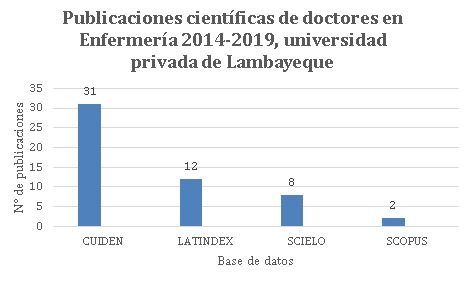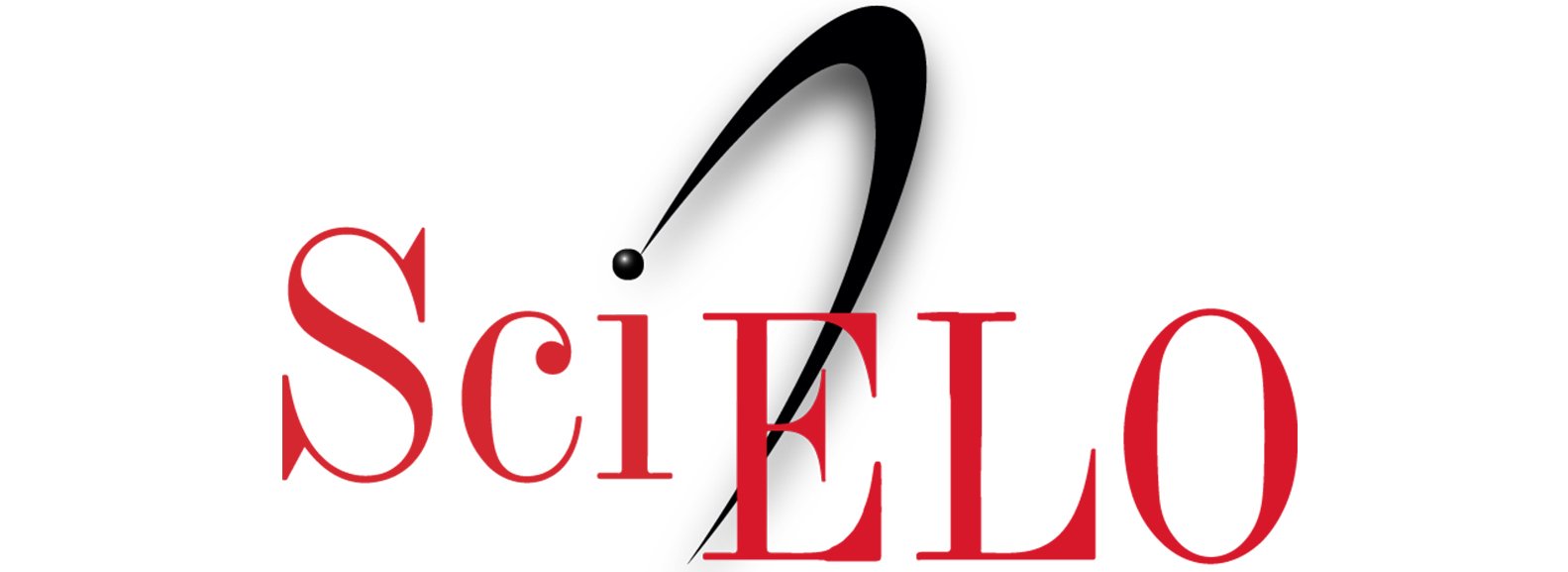LETTERS TO THE EDITOR
REVISTA DE LA FACULTAD DE MEDICINA HUMANA 2020 - Universidad Ricardo PalmaDOI 10.25176/RFMH.v20i3.2964
SCIENTIFIC PUBLICATIONS OF DOCTORS OF SCIENCE IN NURSING: CASE REPORT OF A PRIVATE UNIVERSITY IN LAMBAYEQUE, PERU.
PUBLICACIONES CIENTÍFICAS DE DOCTORES EN ENFERMERÍA: CASO DE UNA UNIVERSIDAD PRIVADA DE LAMBAYEQUE.
Díaz Manchay, Rosa 1; Rodríguez Cruz, Lisseth11;
Ñique Carbajal, César2
1Departamento de Ciencias de la Salud, Universidad Católica Santo Toribio de Mogrovejo. Lambayeque, Perú.
22 Escuela de Medicina, Facultad de Ciencias de la Salud, Universidad Señor de Sipán. Lambayeque, Perú.
Dear Editor,
LThe "sine qua non" work of research Universities is the generation of knowledge. This mission is a privileged task of the university community, formed mainly by professors with a doctoral degree. They develop
the lines of research that their social environment demands. In Peru, according to the data from National Council of Science and Technology in 2015 only 39% and 40% of the total researchers working in public and private universities, respectively,
have a doctoral degree, and 27% of the total belongs to the area of science and technology, while the health sector only reaches 15.9% (1) EThis group has made the guidelines and criteria for the categorization
of a qualified researcher in our country, establishing for university teachers with a doctoral degree a moral imperative to achieve such a name based on the contribution shown in their line of professional performance. They are generating
a personal level of public recognition as academic authorities, opinion leaders, and consultants thematic; as well as for the university, at the institutional level, the achievement of the processes of licensing and accreditation(2,3)
It is evident that there is a need for a greater number of doctors in the area of the health sciences. However, it is also important to note that there are limitations to the research work done by professors, especially in private
universities. It is diminished by the excessive number of work, teaching, and administrative hours. We designed a brief report of bibliometric type, to measure the scientific production of the teachers with a doctor's degree at the school
of nursing of the Catholic University Santo Toribio de Mogrovejo (USAT). This information was retrieved from the following databases: CARE, Latindex, SciELO, and Scopus, using a search strategy with the full name of the teachers selected,
between the years 2014 – 2019.
It was found that in the total number of professors belonging to the school of nursing of USAT, 16% have a doctoral degree, and all are females. Their scientific production reported in the last 5 years (2014-2019) is 70% of the total
research work of the school in mention. This work has been published in the following databases CARE (31), Latindex (12), SciELO (8), and Scopus (2), as shown in figure 1. It should also be emphasized that the scientific paradigm that stands
out in most of the analyzed publications is the qualitative one, and the favored themes in their research are human care, ethics, culture, and history of nursing. This data is compared to a study carried out at the Medical College of Peru
on the publications of other collegiate with masters and doctoral degrees shown in both Google School and Scopus with a low frequency of publications. In the case of physicians with a doctoral degree of the total analyzed only 33% and 11%
respectively had published in the databases mentioned. (4)
The conclusion of this preliminary study shows that there is a low production in the databases that are taken into account by high ranked universities and institutions in Latin American and at the global level as SCImago. Also, there
is an absence of publications in journals that are published in English. If you take these two factors into considerations, it could increase the scientific output and the visibility of the school in global rankings. Actions need to be taken
to favor the conditions for which the doctors can manage the research within the university, by giving them the necessary resources, decrease other administrative functions, and increase the availability of hours devoted exclusively to research,
as substantive elements for achieving the set goals in short-term.

Figure N° 1:Scientific publications of doctors of nursing between 2014 to 2019 from a private university in Lambayeque, Peru.
Authorship contributions: The authors participated in the genesis of the idea, data collection, and interpretation, analysis of results, and preparation of the manuscript of the present research work.
Financing: Self-financed.
Conflict of interest: The authors declare that they have no conflict of interest.
Received:April 23, 2020
Approved:May 23, 2020
Correspondence:César Ñique Carbajal
Address:Av. Miguel Grau 1552 La Victoria. Chiclayo Perú.
Telephone number: 74 315161
Email: cesarman2@crece.uss.edu.pe
REFERENCES
